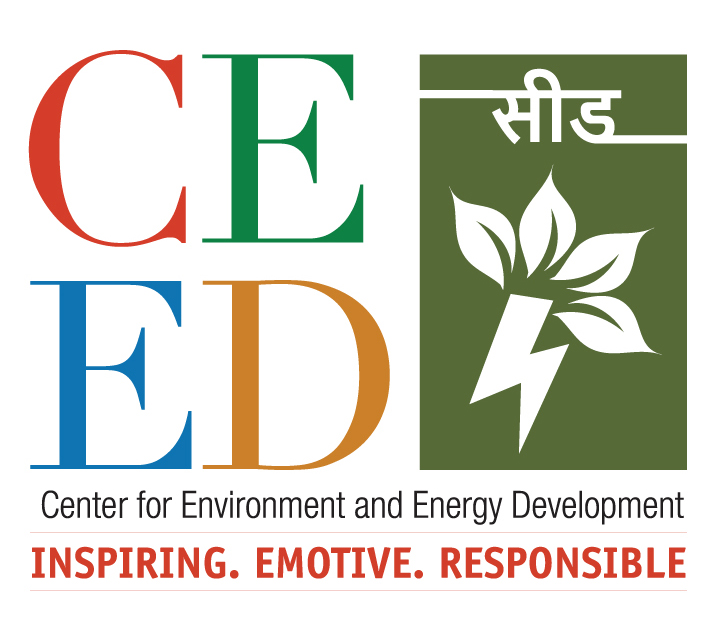Task Force-Sustainable Just Transition
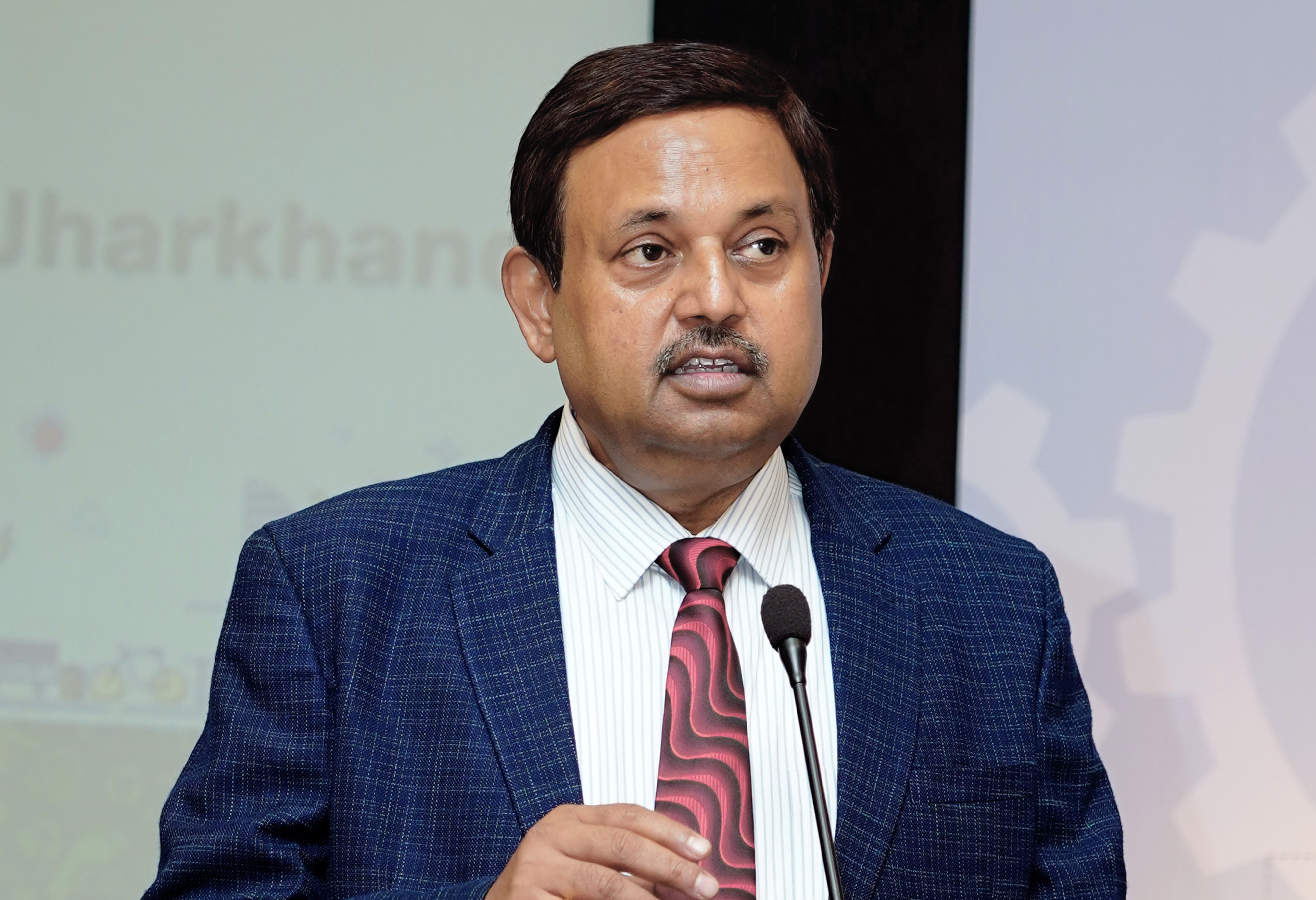
Aligned with India’s net-zero ambitions and climate goals, the Government of Jharkhand has constituted a multi-department ‘Task Force on Sustainable Just Transition’. The Task Force has been mandated to assess, estimate and recommend various steps to the state government for the planned transition process.
The vision for the Sustainable Just Transition in Jharkhand is primarily guided by India’s long-term goals of achieving Net-zero by 2070 as committed in its updated Nationally Determined Contributions (NDCs) and other priority actions as per Sustainable Development Goals (SDGs).
The Task Force aims to provide key recommendations to the Government of Jharkhand by identifying innovative pathways for transitioning to a non-fossil fuel-based ecosystem, assessing the impact on the economy, workers, and communities, identifying opportunities in green sectors, and recommending policy interventions.
Jharkhand is committed to explore sustainable pathways for becoming a climate-compatible and forward-looking economy. For realising the net-zero ambitions, the state is strategically moving forward to ensure that energy transition and sustainable climate actions. The state is keen to support India’s leadership in a transition process which addresses the nation’s energy security and socio-economic interests.
Background
Jharkhand is a growth engine of India, with 40% of India’s mineral and 26% of coal reserves. Though shifting towards a net-zero and climate resilient development approach is a challenging task for fossil-fuel states like Jharkhand. Considering the over-dependence on fossil fuel ecosystems and climate vulnerabilities, the state is poised to face multiplier effects in coming decades.
Acting upon these challenges, The Government of Jharkhand has taken several initiatives. Chief among them were, a series of consultations and workshop organised by the Department of Forest, Environment & Climate Change (Government of Jharkhand), Jharkhand State Pollution Control Board in association with the Centre for Environment and Energy Development (CEED) to explore the way forward of sustainable transition pathways in the state.
Some of these pathbreaking workshops, conducted in 2022, were as follows:
- Sustainable Pathways for Future-ready Jharkhand (09 May 2022)
- Carbon Budgeting and Neutrality : The Way Forward for Industries (01 June 2022)
- Building Climate Resilient Jharkhand : Adaptation and Mitigation (21 June 2022)
- Making Just Transition a Reality in Jharkhand (14 September 2022)
These pathbreaking workshops deliberated and put forward the vision-centric ideas, perspectives and learning from key policymakers, industries and PSUs leaders, and notable academicians from the state with the overall aim to transform Jharkhand for achieving sustainability, inclusivity and prosperity. There was overall consensus among key stakeholders to formalise this process by setting up a task force and preparing a blueprint for the future. As a result, the Government of Jharkhand constituted a Task Force to frame the sustainable energy transition pathways in the state.
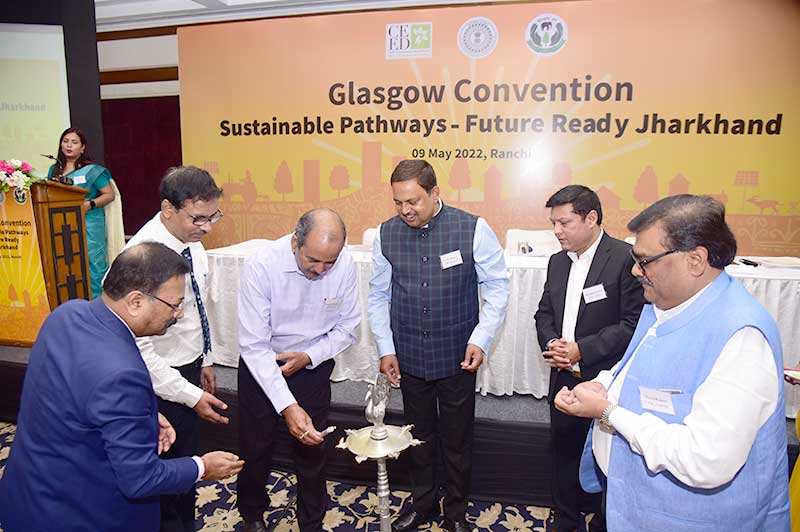
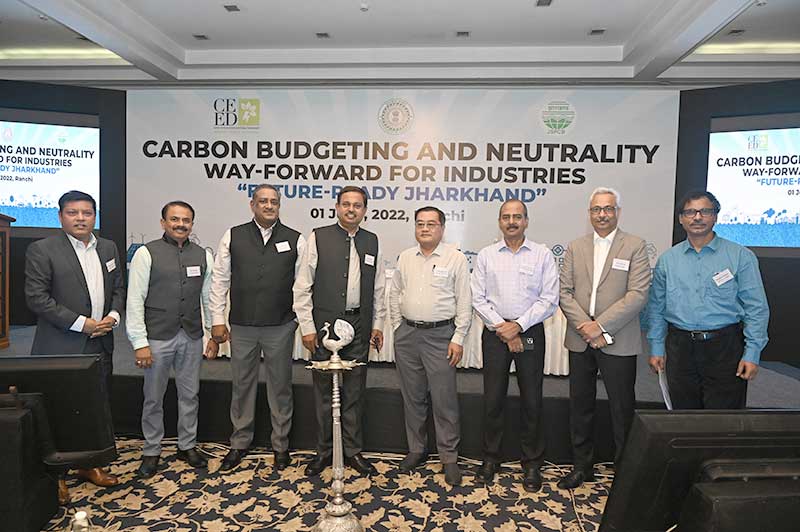
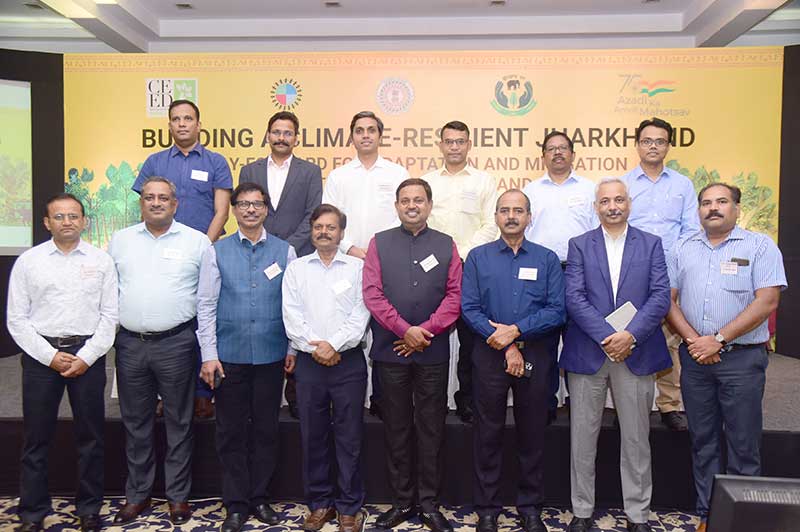
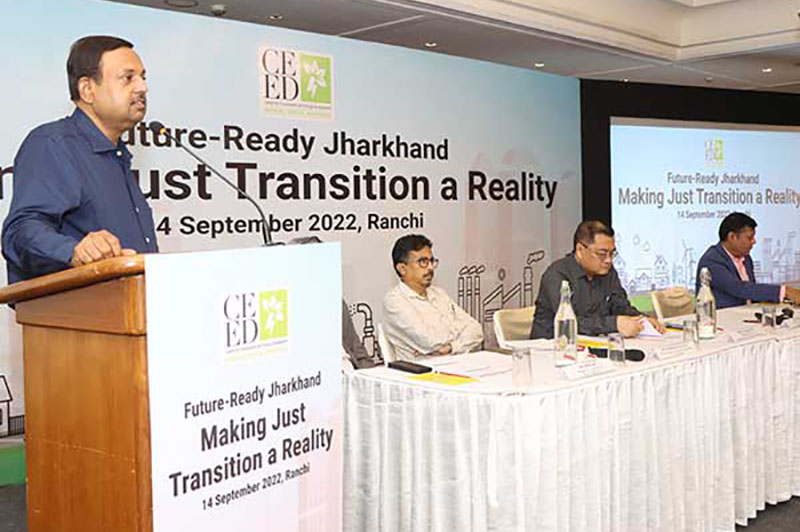
Constitution of Task Force
The Government of Jharkhand has taken proactive measures towards transitioning to a sustainable future through the constitution of the Task Force on Sustainable Just Transition (vide notification letter number: 3247, dated: 09.11.2022) and Green Hydrogen Mission (vide notification letter number: 586 dated: 17.03.2023).
Vision and Mission
Guided by a vision of equity, justice, gender and inclusivity, the sustainable transition process envisions reshaping the new and emerging livelihood opportunities while decarbonising the industries and developing the low-carbon development pathways to attain energy security and sustainable development goals.
Aim
The Task Force aims to develop path-breaking policy recommendations that will guide Jharkhand towards a forward-looking economy, aligned with India's Nationally Determined Contributions and the Sustainable Development Goals.
Mandates and Objectives
To deeply understand the various phases of transition and their overall implications with respect to Jharkhand, the Task Force will deep dive into the identified thematic areas and provide a detailed recommendation for a Future-Ready Jharkhand.
- Climate-Compatible Growth for a Future-Ready Jharkhand
- Just and Equitable Transition: To ensure an equitable transition with focus on gender centric, indigenous people centric approach to a green and sustainable economy.
- Low-Carbon Development: To promote the development of new sectors, such as renewable energy, sustainable mobility, and decarbonisation pathways for industries.
- Sustainable Policy and Intervention: To recommend policies and interventions that promote investment in sustainable infrastructure and industry, while also supporting community-led initiatives
Structure of the Task Force

Chairman
Shri Ajay Kumar Rastogi (IFS, Retd)
Former PCCF & HOFF and Ex-Chairman, JSPCB
Members : (Nominated/representatives from identified depts/board/agencies)
- Dept of Forest, Environment and Climate Change
- Dept of Planning and Development
- Dept of Mines and Geology
- Dept of Industries
- Dept of Health
- Dept of Finance
- Dept of Agriculture, Animal Husbandry and Co-Operative
- Dept of Rural Development
- Dept of Urban Development
- Dept of Schedule Tribe, Schedule Caste, Minority and Backward Class Welfare
- Dept of Labour & Employment, Training and Skill Development
- Dept of Energy
- Dept of Transport
- Dept of Tourism, Arts, Culture, Sports and Youth Affairs
- Member Secretary, Jharkhand State Pollution Control Board
- State Coordinator, State Level Bankers Committee
- Jharkhand State Livelihood Promotion Society
- Jharkhand Renewable Energy Development Agency
Technical partner
As per the government notification, the Task Force has appointed Centre for Environment and Energy Development (CEED) as a local technical partner to provide knowledge management and hand-holding support and its regular functions and operational activities. CEED is helping out in managing programs, conducting consultations, and coordinating with the actors and stakeholders inside and outside the system.
CEED is an institution of repute in the sustainable environment and clean energy sector with a strong presence in the state. Over the years, CEED has supported key departments and agencies of Jharkhand in creation of cross sectoral roadmaps on energy transition, clean air action plans and sustainability based reports to enable it becoming a frontline state on sustainable development pathways.
Vision Document
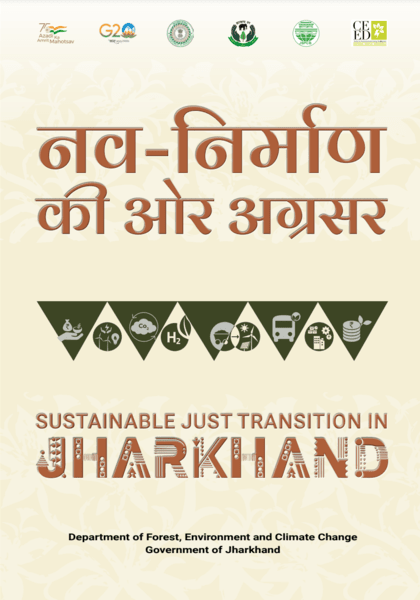
The vision document (नव-निर्माण की ओर अग्रसर; Nav-Nirman Ki Ore Agrasar) attempts to project the pathways for a sustainable and equitable future. Based on the insights and perspectives from a series of multi-stakeholders consultations, it outlines goals, strategies, and action plans to meet net-zero ambitions and climate goals while ensuring equity-based development.
The vision document reflects on the key approaches by the Government of Jharkhand through a step-wise transition to sustainable and inclusive climate actions where no one is left behind.


